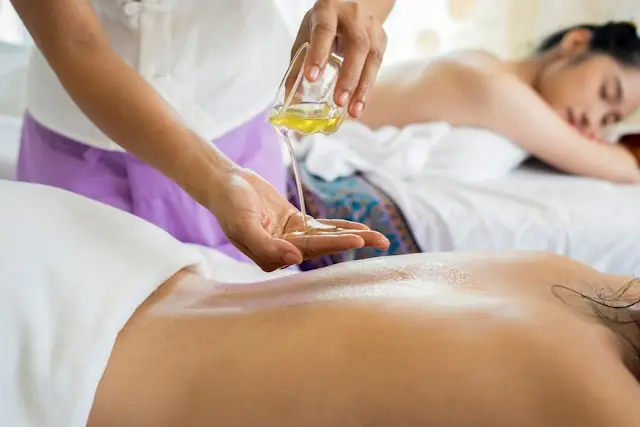Your lymphatic system is the behind-the-scenes network that collects cellular waste, escorts it through a series of lymph nodes for inspection, and returns clean fluid to your bloodstream. Unlike your heart, there is no central pump for lymph. Movement, breath, and external pressure are what keep this river flowing, which is why a full body massage can be a powerful ally for detox and immune support; guidance at https://www.oasishealingforyou.com/ explains how thoughtful techniques encourage drainage and relaxation.
Why lymph gets sluggish
Sitting for long periods, shallow breathing, tight fascia, and chronic stress can slow lymph flow. When that happens, your tissues can feel puffy, your energy dips, and your immune surveillance has a harder time doing its job.
How massage moves lymph
Gentle, rhythmic strokes stretch the skin’s superficial layers where many lymph capillaries live, creating a pressure change that helps pull fluid into the vessels. Light compression and directional sweeps guide that fluid toward major drainage points near the collarbones, armpits, and groin so your body can process and release it efficiently.
Techniques that help the most
- Light, skin-stretching strokes that follow lymph pathways
- Diaphragmatic breathing to act as an internal pump
- Slow rocking and joint movement that encourages fluid exchange
fun fact: Your body contains more lymph than blood, and many vessels sit just beneath the skin’s surface, which is why gentle pressure can be surprisingly effective.
Immunity benefits you can feel
When lymph moves well, immune cells circulate more freely, waste clears faster, and inflammation can quiet down. This is not a cure for illness, but many people notice less swelling, clearer sinuses, and a sense of lightness after a session. Massage also nudges the nervous system toward the parasympathetic state, which supports better sleep and hormonal balance, both essential for a resilient immune response.
The role of stress reduction
Chronic stress releases cortisol that can dampen immune activity. Intentional touch, slow breathing, and safe relaxation help lower that load. Over time, regular sessions can become a proactive ritual for immune maintenance rather than a reactive tool only when you feel run down.
What a skilled session looks like
A thoughtful therapist may begin with gentle neck work near the venous angles, then address the abdomen for deep diaphragmatic movement, and finally use light, directional strokes on limbs toward the nearest lymph basins. For more depth on how different styles are applied with intention, explore a reputable overview of therapeutic massage from a provider that explains methods, benefits, and when to choose lighter lymph-focused work versus restorative full body sessions.
Movement and massage are the dream team
Before exploring more techniques, it is worth noting how purposeful training can complement manual lymph work. When you pair regular massage with smart strength and conditioning, you create a natural pumping effect from contracting muscles and a faster return of lymph to the bloodstream, which supports both detox and immune readiness.
One well-designed velocity and power program shows how this synergy works in practice by training the body to move efficiently while respecting recovery. Across carefully coached sessions, participants cycle through technique-driven sprints, plyometrics, agility drills, movement drills that build quickness, and fundamental strength lifts that emphasize alignment, tempo, and progressive overload. The goal is not to grind but to cultivate crisp mechanics that distribute force evenly, reduce tightness, and keep the fascial system supple. As muscles contract and relax through quality movement, they squeeze surrounding tissues like a rhythmic pump, encouraging lymph to travel from the limbs toward major drainage points. Coaches often pair these efforts with mobility flows and purposeful breathwork, which further stimulates diaphragmatic movement, opens common bottlenecks around the shoulders and hips, and steadies the nervous system. Woven together with regular full body massage, this kind of training becomes more than performance work. It becomes a practical circulatory strategy that supports detox, reduces post-exercise soreness, and helps immune cells move where they are needed in real time.
Getting started without guesswork
Start with a light-pressure, full body session if you are new, or request specific lymph-supportive work around the neck, abdomen, and hips. Share health history, hydration habits, and any swelling or tenderness with your therapist so they can tailor pressure and pacing. If you are managing a medical condition, recent surgery, or have active infection, consult a healthcare professional first and ask about timing and clearance for massage.
A simple at-home routine between sessions
- Spend five minutes on slow belly breathing to move the diaphragm
- Add gentle neck stretches and shoulder rolls to open common drainage points
- Walk or rebound lightly for 10 minutes to keep fluid circulating
Fun fact: Deep breaths create a pressure gradient that pulls lymph upward through the thoracic duct, so your lungs double as an internal lymph pump.
Little lifestyle levers that amplify results
Hydrate well before and after a session so your body has the fluid it needs to carry waste away. Prioritize mineral-rich foods, steady sleep, and movement snacks throughout the day. Even a few minutes of ankle pumps, cat-cow, or wall angels can keep the lymph river flowing between appointments. For an evidence-informed, hands-on approach, look for a therapeutic massage provider that explains session structure, pressure selection, and aftercare so your plan fits your goals without guesswork.
The take-home
Massage does not force detox. It supports the elegant system your body already uses, helping it work with less friction. Paired with intelligent training, breath, and daily micro-movements, it becomes a practical, feel-good way to boost circulation, lighten inflammation’s load, and give your immune system the calm, well-supplied environment it needs to thrive.

Leave a Reply